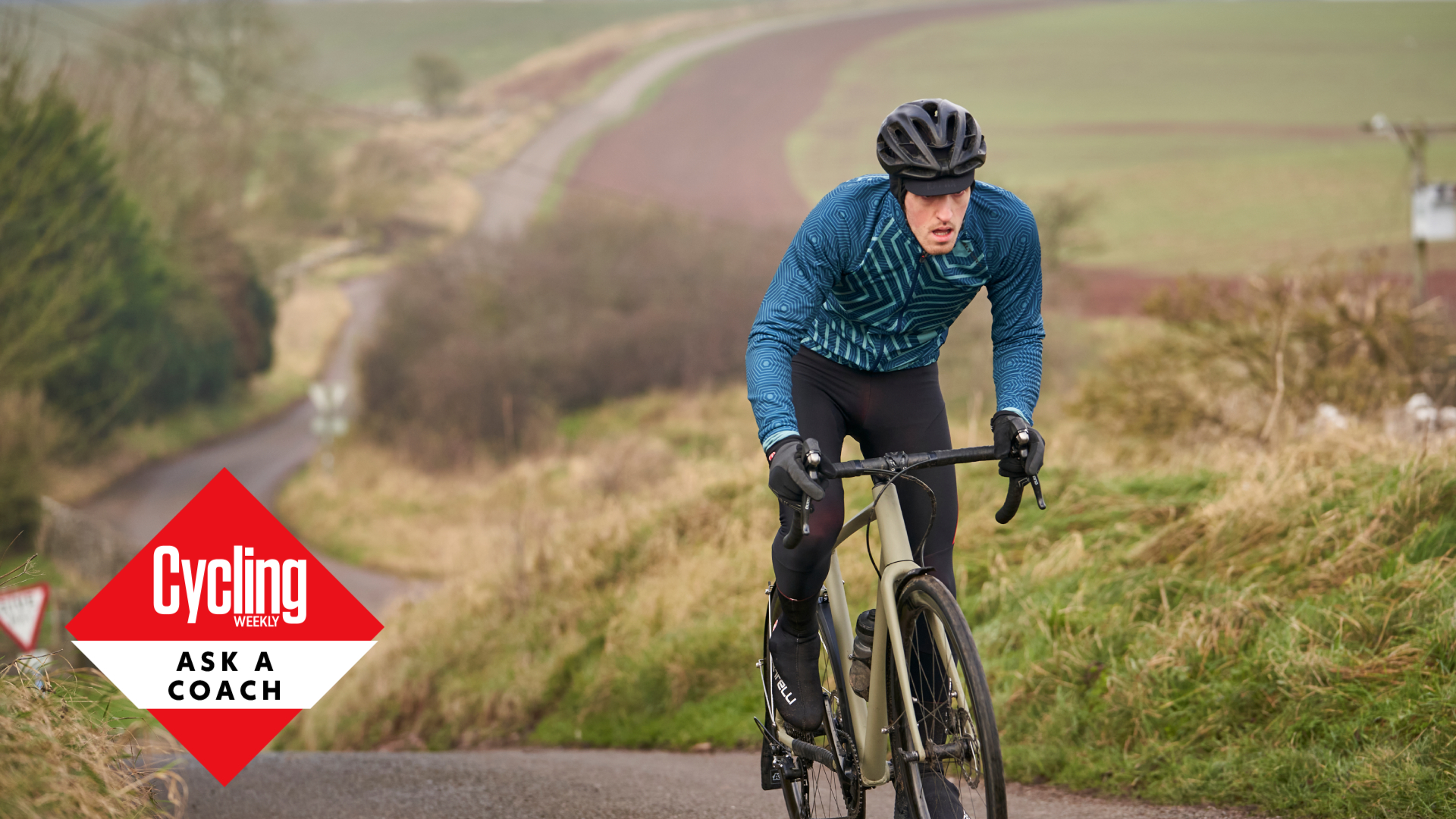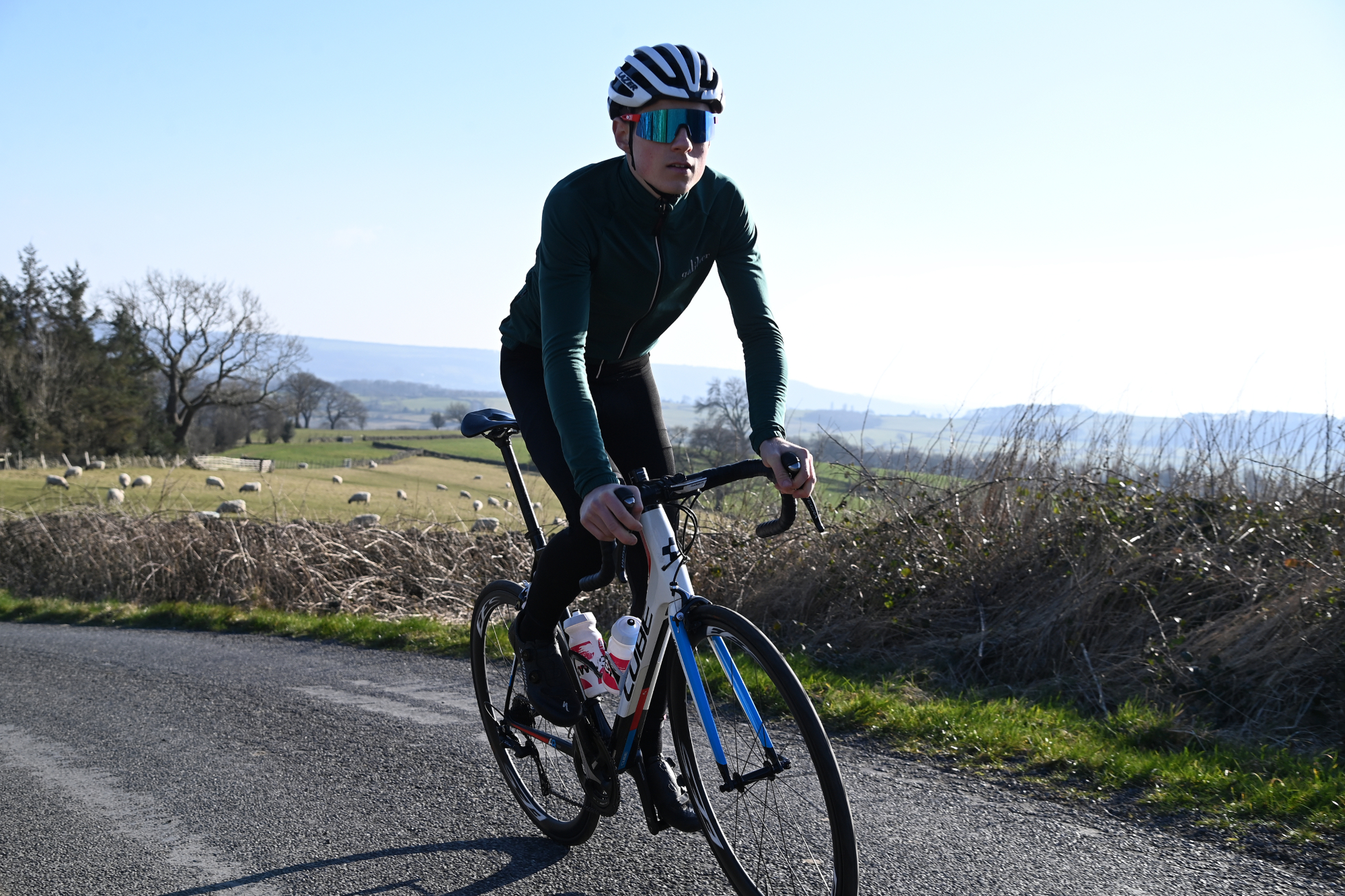Ask a coach: ‘Are there any actual fitness benefits to doing winter miles on a heavier bike?’
The answer depends on your summer goals and how you like to train – there’s more to it than just a binary yes or no


The latest race content, interviews, features, reviews and expert buying guides, direct to your inbox!
You are now subscribed
Your newsletter sign-up was successful
Winter has arrived and so has the season for building your base and keeping on top of your fitness. Winter training is critically important for the rest of the year, but it’s also the hardest period to cycle in as it’s also mightily cold out. As such, you’re going to want to make every last mile in your cycling training plan ‘count’ as you prepare for your spring/summer riding goals.
As well as being harsh to ride in, winter conditions can be harsh on your bike, which is why a robustly built and well-equipped winter bike is well worth considering. But aside from the tech benefits, are there any fitness benefits to training on a heavier bike? James Spragg explores the pros and cons to performance gains…

Sports scientist and coach James Spragg is one of the experts who will be answering your questions in Cycling Weekly's ASK A CYCLING COACH series which comes out every Wednesday. Working both in research and applied settings, he currently runs Intercept Performance Consultancy.
This is a brilliant question because there is an answer that springs to mind straight away… but when you think about it a little more that answer becomes a lot more nuanced. Let me elaborate…
At first thoughts, you might think “of course there is, you need to work harder, and therefore you will get fitter. Plus, when you jump on your race bike it will be a lot lighter and you’ll be flying.”
However, think a little deeper and it turns out this is only partially true…
If you do a lot of group riding then yes, riding a heavier winter bike compared to your best road bike, will mean you need to work harder to keep up with your mates. However, if you train alone it’s going to make no difference.
When you train alone you will likely be riding to a certain RPE or within a given range of power outputs or heart rate values, as set by cycling training zones. If you do this, it will make no difference if you train on a heavier bike over a lighter bike. After all, the intensity will be exactly the same. You will be going quicker on the lightweight bike…. but the training effect will be the same.
The latest race content, interviews, features, reviews and expert buying guides, direct to your inbox!
The same also goes for if you spend most of your time on the turbo trainer. It’s not going to make any difference if it’s your lightweight bike or your heavy winter bike strapped to the turbo.
Now, what about the psychological efforts of going from a heavy bike to a race bike just before the season kicks off? Personal experience tells me that the first ride back on a lightweight bike does feel amazing. The rapid acceleration, the sense of speed and the ease of ticking along at high speed. This is probably due to a mismatch between your expectations of how your bike will respond and how the lightweight bike actually responds. This boost in morale shouldn’t be underestimated. Feeling good and confident is an important part of getting ready for those early-season races.
So what would be my recommendation – should you train on a heavy bike throughout the winter?
I would have no problem if one of the athletes I work with wanted to train on a heavier bike throughout the winter, likewise, I also wouldn’t mind If they wanted to spend the winter on their race bike. However, I would have some considerations…

The first of these is whether they can achieve the same position on both bikes. It seems silly to go to the expense of getting a good bike fit to then spend the entire winter riding in a different position.
The second consideration would be the terrain an athlete has access to? In the depths of winter, it can be a great idea to head off onto gravel tracks rather than sticking to the road – you travel a little slower off-road for the same effort and therefore it’s much easier to stay warm (there is a much smaller cooling effect).
Finally, I would ask myself if the athlete needs that morale boost that comes from jumping on a faster more responsive bike coming into the season. Or would it be better for them to stay accustomed to how their race bike handles?
In conclusion, there is probably no major benefit to spending your winter on a heavier bike, but there is also no major downside. Therefore, I would choose the bike that best facilitates the training I want to achieve throughout the winter. Making the most of an entire winter of training will outweigh any positives or negatives of being on one bike or another.
In this age of online training plans and workouts, do you ever find yourself with a burning question you’d like to directly ask a cycling coach? Well, now is your chance to ask away! In this series, we’ll be putting your questions to expert coaches – send them in to Cycling Weekly's Fitness Features Editor at anna.abram@futurenet.com.
James Spragg is a sports scientist and coach, working both in research and applied settings. When not working with athletes James can be found skiing, climbing, cycling or drinking coffee!
Alongside Dan Lorang and Peter Leo, James runs Intercept Performance Consultancy. Over the last 8 years in various roles, as coaches, performance consultants, performance managers, and sports scientists, Dan, James and Peter have played a role in helping athletes achieve more than 10 World Championship titles, several Olympics medals (including a Gold and Silver Medal in Tokyo 2020) and several Top 5 results in some of the biggest sporting events on the planet (Tour de France, Olympics, World and European Championships). Our single focus is on improving performance in all settings.